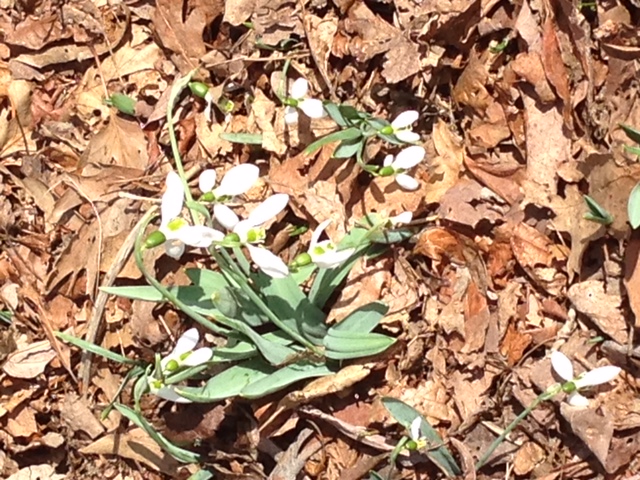Resurrection
She couldn’t remember how long she had moved through life like an open, well-disguised, wound. She was articulate and beautiful, and her pride was a rapier intelligence. She’d have made a good litigator. I know, because she could reduce a theological proposition to dust in a heartbeat with one of her challenging questions.
A psychologist by profession, she had exhausted every avenue of self-analysis without finding relief for the problems that beset her: a push-me-pull-you relationship with a partner, alienation from her family, a sense of dislocation. She came to my door feeling numb.
She told me that she wanted to “try God.”
By this, I soon discovered, she meant, “take God on.”
We spoke together over many months, discussing books, ways of praying, ideas, Scripture. It was an intellectual dance, and I began to see that it paralleled an exterior life of perpetual advance and retreat. She stayed in one place for only a year or two, laying plans to leave before she’d settled in. She took up multiple partners. She was a master escape artist. Always, she had an out. And she’d always taken it, moving away, finding a new job, a new city.
One day as I sat across from her, feeling her vulnerability behind the mask of calm and cool, I asked her, “Why are you here?”
She hadn’t expected this. Her dance partner had dropped back, to look more closely at the steps we were repeating over and over again.
It was a labyrinthine dance of pain, but also of safety. Round and round. An exercise in propping up her problems, or images of God, only to them strike down, to reject or dabble, or explore as intellectual propositions.
We sat with a lot of silence that day. Words were incapable of reaching into the place where the dance ended.
After some time she asked, in a small, exposed voice, “Where was God when I needed him?”
It was the first expression of genuine feeling I’d heard from her in all those many months.
None of us escape the desolate hours. How many times have I asked the same question? Wakened in the middle of the night feeling existentially alone, moved through weeks not knowing in hindsight what got me through? Her adolescence had been shattered by a mentally-ill parent around whom the family navigated, with many raw edges. What died in her during those years wasn’t just hope, and it wasn’t just faith. What died was the idea of God as a source of love, comfort, affirmation.
She’d been wandering ever since, walled off from the worst of her pain by her brilliant mask, never daring for a moment to release her grip on the strategies that had “worked” – at least, had gotten her through. But at a price.
She left, and I didn’t know if I would see her again.
Time passed.
Recently, she came to visit.
“I’m thinking of staying, getting a new apartment, “she smiled for the first time in months. “I’m not sure why I felt so compelled to leave.”
This wasn’t all.
“I saw my mother a few weeks ago,” she went on. “She told me that she hopes I’ll stay, and for the first time in years I heard this as a genuine expression of her love.”
Tears started running down her cheeks.
“Something has shifted,” she told me.
Sometimes the dance needs to stop, the masks be removed. Only in this way can we find our way back to the beating heart that hides, protecting itself, sparring with shadows. It’s very hard to do this alone. We need each other to name the dance of our harsh inner tapes, our inability to forgive, or spinning in circles – however elegant or articulate.
What had changed? I asked her.
“I’m not entirely sure,” she said, “but I seem able to appreciate everything I have more fully. I’m paying attention to things, realizing that I actually like some of the people I work with. I have a lot to be grateful for.”
“God never left you,” I told her, able to share what I have had to learn over and over again in my own life. “You asked where God was when you needed him, in your darkest times. God was there. It was God who was weeping in you.”
This is the discovery. When we slip out from under our rocks of hurt and unworthiness and anger and shame, when we allow the light of a love without agenda to crack our stone walls, something amazing happens. We let in a power that can destroy our self-made tombs, and begin to emerge into something bigger and more real than we’d imagined.
It is scary to do this. It’s much easier, I suspect, to be a blade of grass than a human being. But the newly greening grass helps to remind us: Resurrection is all around us, quiet as a smile and a direct glance where once there was evasion, self-protective wit, a distance of fear. It takes a friend, a teacher, a gardener, someone who is genuinely interested in the answer to the question, “Who are you really? Tell me your story. Why are you here?”





No Comments